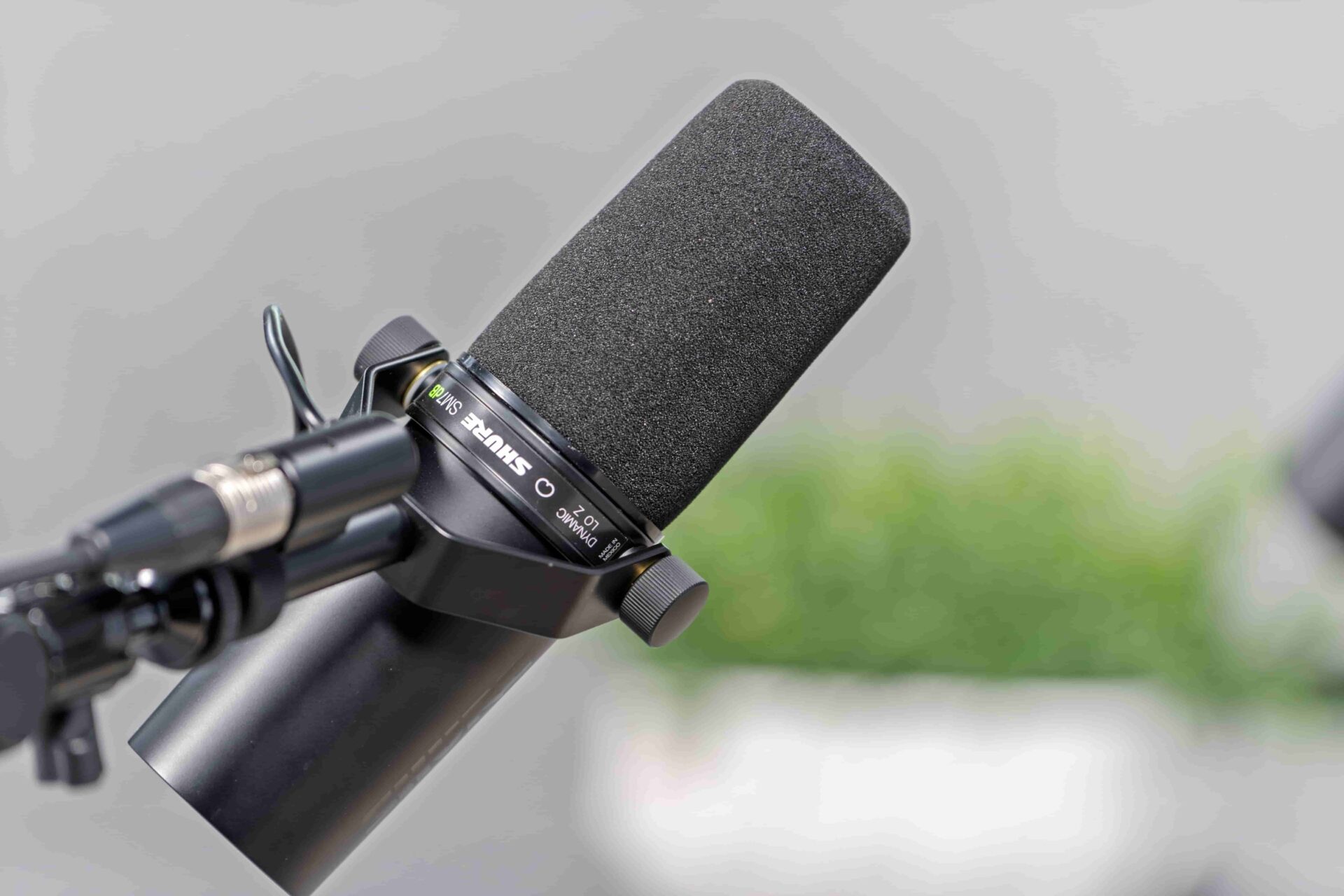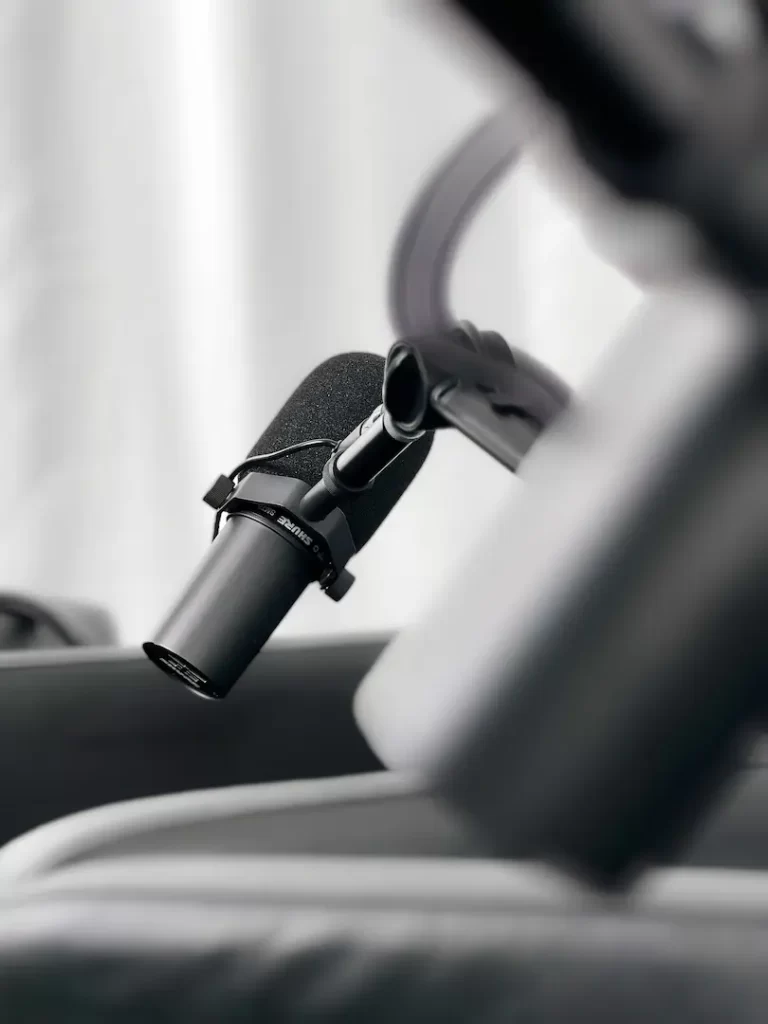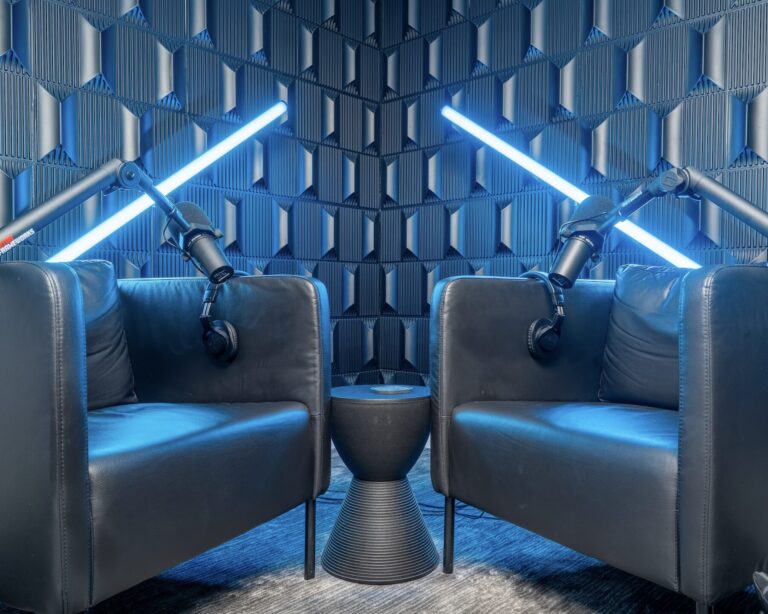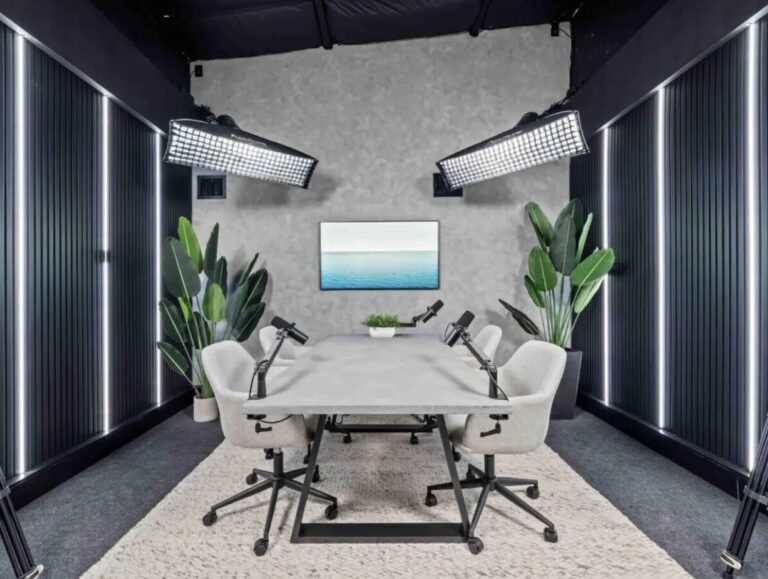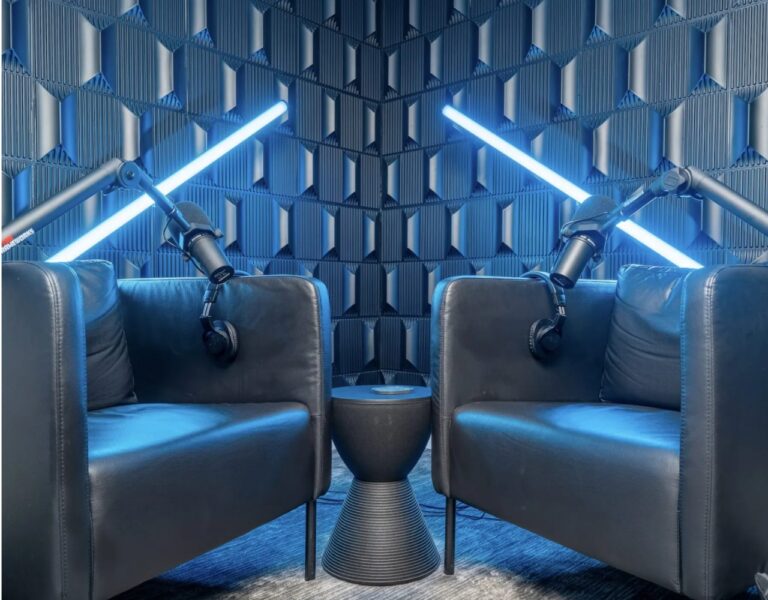The 5 Most Common Microphones Used for Podcasting: A Guide to Finding the Perfect Sound
Podcasting has exploded in popularity, and one of the key factors to producing a high-quality podcast is having the right microphone. Whether you’re a seasoned podcaster or just getting started, the microphone you choose can make a significant difference in the clarity, tone, and overall professionalism of your recordings. With countless options available, it can be overwhelming to know where to start. In this article, we’ll explore five of the most common microphones used for podcasting and why they’re trusted by creators around the world.
1. Shure SM7DB: The Gold Standard for Podcasting
The Shure SM7DB has long been considered the gold standard for podcasting microphones. Known for its rich, warm tone and ability to capture the nuances of the human voice, this microphone is a favorite among professionals.
Key Features:
- Dynamic Microphone: This means it’s built to handle high-pressure sound levels, making it perfect for recording vocals.
- Cardioid Polar Pattern: The SM7DB picks up sound directly in front of the microphone and reduces background noise, making it ideal for less-than-perfect studio environments.
- Air Suspension Shock Isolation: This feature eliminates mechanical noise transmission, providing a cleaner recording.
Why Podcasters Love It:
The Shure SM7DB is known for its versatility. It’s a dynamic microphone, which means it doesn’t require a lot of fancy equipment or a perfectly treated room to sound amazing. Whether you’re in a dedicated studio or recording in a less-than-ideal setting, this mic will still deliver a clear and crisp sound. It’s especially revered for broadcast-style vocals, making it a top choice for podcasters who want that classic radio sound.
Price Point:
The Shure SM7B retails around $499, which is on the higher end for a microphone but well worth the investment for those seeking professional-grade audio.
2. Audio-Technica ATR2100x-USB: The Budget-Friendly Favorite
For podcasters on a budget, the Audio-Technica ATR2100x-USB offers a fantastic balance between price and quality. It’s one of the most popular entry-level podcast microphones, but its performance can easily keep up with more expensive alternatives.
Key Features:
- Dual Connectivity: This mic offers both USB and XLR outputs, making it perfect for beginners and those transitioning to more advanced setups.
- Cardioid Polar Pattern: Like the Shure SM7B, the ATR2100x focuses on sound from the front, reducing unwanted background noise.
- Built-In Headphone Jack: The microphone has a headphone output with volume control, allowing you to monitor your recording in real-time.
Why Podcasters Love It:
The versatility of the ATR2100x-USB is unmatched at this price point. New podcasters can start using it with just a USB connection to their computer, and as their setup evolves, the XLR functionality allows them to integrate it into a more complex audio chain. Portability is another reason why podcasters choose this mic— it’s compact, easy to travel with, and durable.
Price Point:
At around $99, the Audio-Technica ATR2100x-USB is a great option for podcasters seeking an affordable, reliable microphone.
3. Rode NT1-A: The Silent Performer
For podcasters looking for a condenser microphone with incredible sensitivity and clarity, the Rode NT1-A is a go-to choice. Condenser mics are typically known for capturing more detail than dynamic mics, which is why the NT1-A is so highly regarded in podcasting and voiceover work.
Key Features:
- Condenser Microphone: Unlike dynamic mics, condenser microphones are more sensitive to sound, making them ideal for capturing the full range of your voice.
- Extremely Low Self-Noise: The Rode NT1-A is one of the quietest microphones on the market, with a self-noise level of just 5dB.
- Large Diaphragm: Its large diaphragm helps produce a rich, warm tone and captures nuances that smaller mics might miss.
Why Podcasters Love It:
The NT1-A is beloved for its ability to deliver studio-quality recordings. It captures vocal subtleties with exceptional clarity, making it ideal for narrators, interviewers, and anyone who wants their voice to stand out. Despite being a condenser mic, it manages to reject background noise relatively well, and with its ultra-low self-noise, it ensures a clean sound with minimal post-processing required.
Price Point:
The Rode NT1-A is priced at approximately $229, making it an attractive option for podcasters seeking high-quality sound without breaking the bank.
4. Blue Yeti: The Versatile Workhorse
The Blue Yeti is perhaps one of the most recognized microphones in the podcasting world. With its multiple polar pattern options and ease of use, it’s a favorite among beginner and intermediate podcasters who value versatility.
Key Features:
- Multiple Polar Patterns: The Blue Yeti offers cardioid, omnidirectional, bidirectional, and stereo recording modes, making it incredibly flexible for different recording situations.
- Plug-and-Play USB Connectivity: No additional equipment is needed—just plug it into your computer, and you’re ready to record.
- Built-In Gain Control: The Yeti features on-mic gain control, allowing users to adjust the sensitivity directly on the microphone.
Why Podcasters Love It:
The Blue Yeti is perfect for podcasters who need a microphone that can adapt to various scenarios. Whether you’re recording a solo episode, conducting an interview, or capturing a group discussion, the multiple polar patterns provide a tailored solution. Its plug-and-play functionality makes it especially appealing to new podcasters who want a no-fuss setup. The Blue Yeti’s affordability, combined with its versatility, makes it a top choice for those looking for a solid all-in-one microphone.
Price Point:
The Blue Yeti is available for around $129, offering incredible value for the wide range of features it delivers.
5. Heil PR40: The Broadcast Beast
Last but certainly not least is the Heil PR40, a favorite among professional podcasters and broadcasters alike. Known for its exceptional clarity and robust build, the PR40 is a dynamic microphone that delivers high-end performance for serious podcasters.
Key Features:
- Dynamic Microphone: Like the Shure SM7B, the PR40 is a dynamic microphone, meaning it’s built to handle loud sound sources while minimizing background noise.
- Cardioid Polar Pattern: The PR40’s cardioid pattern focuses on sound directly in front of the mic and reduces off-axis noise.
- Extended Frequency Response: This microphone offers a wide frequency range, ensuring that both low and high-end frequencies are captured accurately.
Why Podcasters Love It:
The Heil PR40 is often praised for its ability to reproduce voice with exceptional clarity, making it ideal for podcasts that require a clean, professional sound. Whether you’re recording a solo show or an interview, this microphone captures the full dynamic range of the human voice, from deep lows to crisp highs. The PR40 is a favorite among podcasters who want to minimize post-production editing because of how polished the raw audio sounds.
Price Point:
At around $329, the Heil PR40 is a significant investment, but its reputation for quality makes it a top pick for professional-level podcasters.
Choosing the Right Microphone for Your Podcast
When it comes to podcasting, your microphone is your most important tool. Choosing the right one depends on your specific needs, budget, and environment. Whether you’re just starting out or looking to upgrade your gear, the five microphones we’ve covered—Shure SM7DB, Audio-Technica ATR2100x-USB, Rode NT1-A, Blue Yeti, and Heil PR40—are trusted by podcasters worldwide and offer something for every level of creator.
By selecting the right microphone, you’ll be well on your way to delivering professional-sounding podcasts that captivate your audience and elevate your show.
Join us at Media Pouch Studios!
At Media Pouch Studios, we pride ourselves on offering the highest-quality podcasting experience, and part of that commitment is using the best equipment available. That’s why we use the Shure SM7DB microphone across all our podcasting studios.
Come on in and start your podcasting journey with us today!

